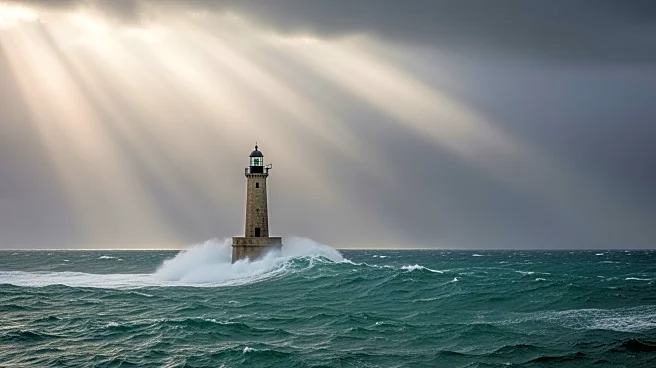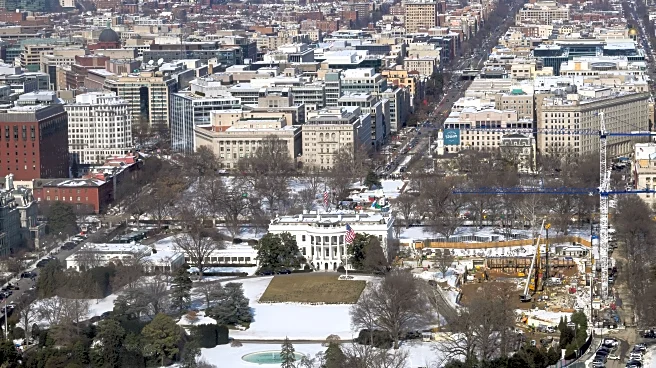What's Happening?
Insured losses from Hurricane Melissa, which recently struck Jamaica, are projected to be between $2.2 billion and $4.2 billion, according to Verisk, a data analytics firm. The hurricane, classified as a Category
5 storm, is the strongest to have directly hit Jamaica since 1988. The majority of the losses are attributed to wind damage, although flooding from heavy rain also played a significant role. Montego Bay, a well-known tourist destination, was among the areas that suffered major damage. Verisk's Extreme Event Solutions unit highlighted the challenges posed by extreme weather events, which are becoming more frequent and severe due to climate change.
Why It's Important?
The financial impact of Hurricane Melissa underscores the growing challenges faced by the insurance industry in the wake of climate change. As natural disasters become more frequent and severe, insurers are experiencing increased claims, which pressure underwriting results and necessitate a reassessment of risk models and pricing strategies. This situation highlights the need for the insurance industry to adapt to the changing climate landscape, which could lead to higher premiums for policyholders and potentially reduced coverage options. The economic implications extend beyond the insurance sector, affecting tourism and local economies in regions like Jamaica that are heavily reliant on tourism.
What's Next?
In response to the mounting costs associated with natural disasters, insurers may need to innovate and develop new strategies to manage risk effectively. This could involve investing in more advanced predictive analytics and catastrophe modeling to better assess potential losses. Additionally, there may be increased collaboration between insurers, governments, and other stakeholders to develop comprehensive disaster preparedness and response plans. The situation also calls for a broader discussion on climate change mitigation and adaptation strategies to reduce the long-term impact of such extreme weather events.
Beyond the Headlines
The aftermath of Hurricane Melissa may prompt a reevaluation of building codes and infrastructure resilience in hurricane-prone areas. There is also a potential for increased investment in sustainable practices and technologies aimed at reducing the carbon footprint and mitigating climate change effects. Furthermore, the event could influence public policy discussions on climate change, emphasizing the need for international cooperation and funding to support vulnerable regions.










